New Executive Order Implements Global Magnitsky Human Rights Accountability Act,
Provides for Treasury Sanctions Against Malign Actors Worldwide
Washington – Today, the Trump Administration launched a new sanctions regime targeting human rights abusers and corrupt actors around the world. Building on the Global Magnitsky Human Rights Accountability Act passed by Congress last year, President Donald J. Trump signed an Executive Order (Order) today declaring a national emergency with respect to serious human rights abuse and corruption around the world and providing for the imposition of sanctions on actors engaged in these malign activities. In an Annex to the Order, the President imposed sanctions on 13 serious human rights abusers and corrupt actors. In addition, the Treasury Department’s Office of Foreign Assets Control (OFAC), acting on behalf of the Secretary of the Treasury, in consultation with the Secretary of State and the Attorney General, imposed sanctions on an additional 39 affiliated individuals and entities under the newly-issued Order.
“Today, the United States is taking a strong stand against human rights abuse and corruption globally by shutting these bad actors out of the U.S. financial system. Treasury is freezing their assets and publicly denouncing the egregious acts they’ve committed, sending a message that there is a steep price to pay for their misdeeds,” said Secretary of the Treasury Steven T. Mnuchin. “At the direction of President Trump, Treasury and our interagency partners will continue to take decisive and impactful actions to hold accountable those who abuse human rights, perpetrate corruption, and undermine American ideals.”
As a result of today’s actions, all of the assets within U.S. jurisdiction of the individuals and entities included in the Annex to the Order or designated by OFAC are blocked, and U.S. persons are generally prohibited from engaging in transactions with them. Further details on these designations are included below.
Yahya Jammeh
Yahya Jammeh (Jammeh), the former President of The Gambia who came to power in 1994 and stepped down in 2017, has a long history of engaging in serious human rights abuses and corruption. Jammeh created a terror and assassination squad called the Junglers that answered directly to him. Jammeh used the Junglers to threaten, terrorize, interrogate, and kill individuals whom Jammeh assessed to be threats. During Jammeh’s tenure, he ordered the Junglers to kill a local religious leader, journalists, members of the political opposition, and former members of the government, among others. Jammeh used the Gambia’s National Intelligence Agency (NIA) as a repressive tool of the regime – torturing political opponents and journalists. Throughout his presidency, Jammeh routinely ordered the abuse and murder of those he suspected of undermining his authority.
During his tenure, Jammeh used a number of corrupt schemes to plunder The Gambia’s state coffers or otherwise siphon off state funds for his personal gain. Ongoing investigations continue to reveal Jammeh’s large-scale theft from state coffers prior to his departure. According to The Gambia’s Justice Ministry, Jammeh personally, or through others acting under his instructions, directed the unlawful withdrawal of at least $50 million of state funds. The Gambian Government has since taken action to freeze Jammeh’s assets within The Gambia.
In a related action, OFAC designated Africada Airways, Kanilai Group International, Kanilai Worni Family Farms Ltd, Royal Africa Capital Holding Ltd, Africada Financial Service & Bureau de Change Ltd, Africada Micro-Finance Ltd, Africada Insurance Company, Kora Media Corporation Ltd, Atlantic Pelican Company Ltd, Palm Grove Africa Dev’t Corp. Ltd, Patriot Insurance Brokers Co. Ltd, and Royal Africa Securities Brokerage Co Ltd.
Roberto Jose Rivas Reyes
As President of Nicaragua’s Supreme Electoral Council, drawing a reported government salary of $60,000 per year, Roberto Jose Rivas Reyes (Rivas) has been accused in the press of amassing sizeable personal wealth, including multiple properties, private jets, luxury vehicles, and a yacht. Rivas has been described by a Nicaraguan Comptroller General as “above the law,” with investigations into his corruption having been blocked by Nicaraguan government officials. He has also perpetrated electoral fraud undermining Nicaragua’s electoral institutions.
Dan Gertler
Dan Gertler (Gertler) is an international businessman and billionaire who has amassed his fortune through hundreds of millions of dollars’ worth of opaque and corrupt mining and oil deals in the Democratic Republic of the Congo (DRC). Gertler has used his close friendship with DRC President Joseph Kabila to act as a middleman for mining asset sales in the DRC, requiring some multinational companies to go through Gertler to do business with the Congolese state. As a result, between 2010 and 2012 alone, the DRC reportedly lost over $1.36 billion in revenues from the underpricing of mining assets that were sold to offshore companies linked to Gertler. The failure of the DRC to publish the full details of one of the sales prompted the International Monetary Fund to halt loans to the DRC totaling $225 million. In 2013, Gertler sold to the DRC government for $150 million the rights to an oil block that Gertler purchased from the government for just $500,000, a loss of $149.5 million in potential revenue. Gertler has acted for or on behalf of Kabila, helping Kabila organize offshore leasing companies.
In a related action, OFAC designated Pieter Albert Deboutte, Fleurette Properties Limited, Fleurette Holdings Netherlands B.V., Gertler Family Foundation, Oil of DR Congo SPRL, Jarvis Congo SARL, International Diamond Industries, D.G.D. Investments Ltd., D.G.I. Israel Ltd, Proglan Capital Ltd, Emaxon Finance International Inc., Africa Horizons Investment Limited, Caprikat Limited, Foxwhelp Limited, Caprikat and Foxwhelp SARL, Lora Enterprises Limited, Zuppa Holdings Limited, Orama Properties Ltd, DGI Mining Ltd, and Rozaro Development Limited.
Slobodan Tesic
Slobodan Tesic (Tesic) is among the biggest dealers of arms and munitions in the Balkans; he spent nearly a decade on the United Nations (UN) Travel Ban List for violating UN sanctions against arms exports to Liberia. In order to secure arms contracts with various countries, Tesic would directly or indirectly provide bribes and financial assistance to officials. Tesic also took potential clients on high-value vacations, paid for their children’s education at western schools or universities, and used large bribes to secure contracts. Tesic owns or controls two Serbian companies, Partizan Tech and Technoglobal Systems DOO Beograd, and two Cyprus-based companies, Grawit Limited and Charso Limited. Tesic negotiates the sale of weapons via Charso Limited and used Grawit Limited as a mechanism to fund politicians.
In a related action, OFAC designated Preduzece Za Trgovinu Na Veliko I Malo Partizan Tech DOO Beograd-Savski Venac (“Partizan Tech”), Charso Limited, Grawit Limited, and Technoglobal Systems DOO Beograd.
Maung Maung Soe
In his former role as chief of the Burmese Army’s Western command, Maung Maung Soe oversaw the military operation in Burma’s Rakhine State responsible for widespread human rights abuse against Rohingya civilians in response to attacks by the Arakan Rohingya Salvation Army. The Secretary of State determined on November 22 that the situation in northern Rakhine state in Burma constituted ethnic cleansing. The United States Government examined credible evidence of Maung Maung Soe’s activities, including allegations against Burmese security forces of extrajudicial killings, sexual violence, and arbitrary arrest as well as the widespread burning of villages. Security operations have led to hundreds of thousands of Rohingya refugees fleeing across Burma’s border with Bangladesh. In August 2017, witnesses reportedly described mass killings and arson attacks by the Burmese Army and Burmese Border Guard Police, both then under Maung Maung Soe’s command in northern Rakhine State. In August 2017, soldiers described as being from the Western Command allegedly entered a village and reportedly separated the inhabitants by gender. According to witnesses, soldiers opened fire on the men and older boys and committed multiple acts of rape. Many of the women and younger children were reportedly also shot. Other witnesses described soldiers setting huts on fire with villagers inside.
Benjamin Bol Mel
Benjamin Bol Mel (Bol Mel) is the President of ABMC Thai-South Sudan Construction Company Limited (ABMC), and has served as the Chairman of the South Sudan Chamber of Commerce, Industry, and Agriculture. Bol Mel has also served as South Sudanese President Salva Kiir’s principal financial advisor, has been Kiir’s private secretary, and was perceived within the government as being close to Kiir and the local business community. Several officials were linked to ABMC in spite of a constitutional prohibition on top government officials transacting commercial business or earning income from outside the government.
Bol Mel oversees ABMC, which has been awarded contracts worth tens of millions of dollars by the Government of South Sudan. ABMC allegedly received preferential treatment from high-level officials, and the Government of South Sudan did not hold a competitive process for selecting ABMC to do roadwork on several roads in Juba and throughout South Sudan. Although this roadwork had been completed only a few years before, the government budgeted tens of millions of dollars more for maintenance of the same roads.
In a related action, OFAC designated ABMC Thai-South Sudan Construction Company Limited and Home and Away LTD.
Mukhtar Hamid Shah
Shah is a Pakistani surgeon specializing in kidney transplants who Pakistani police believe to be involved in kidnapping, wrongful confinement, and the removal of and trafficking in human organs. As an owner of the Kidney Centre in Rawalpindi, Pakistan, Shah was involved in the kidnapping and detention of, and removal of kidneys from, Pakistani laborers. Shah was arrested by Pakistani authorities in connection with an October 2016 incident in which 24 individuals from Punjab were found to be held against their will. Impoverished and illiterate Pakistanis from the countryside were reportedly lured to Rawalpindi with the promise of a job, and imprisoned for weeks. Doctors from the Kidney Centre were allegedly planning to steal their kidneys in order to sell them for a large profit. Police state that one of the accused arrested in connection with the events estimated that more than 400 people were imprisoned in the apartment at various times.
Gulnara Karimova
Gulnara Karimova (Karimova), daughter of former Uzbekistan leader Islam Karimov, headed a powerful organized crime syndicate that leveraged state actors to expropriate businesses, monopolize markets, solicit bribes, and administer extortion rackets. In July 2017, the Uzbek Prosecutor General’s Office charged Karimova with directly abetting the criminal activities of an organized crime group whose assets were worth over $1.3 billion. Karimova was also charged with hiding foreign currency through various means, including the receipt of payoffs in the accounts of offshore companies controlled by an organized criminal group, the illegal sale of radio frequencies and land parcels, siphoning off state funds through fraudulent dividend payments and stock sales, the illegal removal of cash, the non-collection of currency earnings, and the import of goods at inflated prices. Karimova was also found guilty of embezzlement of state funds, theft, tax evasion, and concealment of documents. Karimova laundered the proceeds of corruption back to her own accounts through a complex network of subsidiary companies and segregated portfolio funds. Karimova’s targeting of successful businesses to maximize her gains and enrich herself in some cases destroyed Uzbek competitors. Due in part to Karimova’s corrupt activities in the telecom sector alone, Uzbeks paid some of the highest rates in the world for cellular service.
Angel Rondon Rijo
Angel Rondon Rijo (Rondon) is a politically connected businessman and lobbyist in the Dominican Republic who funneled money from Odebrecht, a Brazilian construction company, to Dominican officials, who in turn awarded Odebrecht projects to build highways, dams, and other projects. According to the U.S. Department of Justice, Odebrecht is a Brazil-based global construction conglomerate that has pled guilty to charges of conspiracy to violate the anti-bribery provisions of the Foreign Corrupt Practices Act, and agreed to a criminal fine of $4.5 billion. In 2017, Rondon was arrested by Dominican authorities and charged with corruption for the bribes paid by Odebrecht.
Artem Chayka
Artem Chayka (Chayka) is the son of the Prosecutor General of the Russian Federation and has leveraged his father’s position and ability to award his subordinates to unfairly win state-owned assets and contracts and put pressure on business competitors. In 2014, reconstruction of a highway began, and Chayka’s competitor for supplying materials to the project suddenly fell under prosecutorial scrutiny. An anonymous complaint letter with a fake name initiated a government investigation against the competitor. Government inspectors did not produce any documents confirming the legality of the inspections, and did not inform subjects of the investigation of their rights. Traffic police were deployed along the route to the competitor, weight control stations were suddenly dispatched, and trees were dug up and left to block entrances. The competitor was forced to shut down, leaving Chayka in a position to non-competitively work on the highway project. Also in 2014, Chayka bid on a state-owned stone and gravel company, and was awarded the contract. His competitor contested the results and filed a lawsuit. Prosecutors thereafter raided his home. After Chayka’s competitor withdrew the lawsuit, prosecutors dropped all charges.
Gao Yan
Gao Yan (Gao) was the Beijing Public Security Bureau Chaoyang Branch director. During Gao’s tenure, human rights activist Cao Shunli was detained at Beijing Municipal Public Security Bureau Chaoyang Branch where, in March 2014, Cao fell into a coma and died from organ failure, her body showing signs of emaciation and neglect. Cao had been arrested after attempting to board a flight to attend human rights training in Geneva, Switzerland. She was refused visitation by her lawyer, and was refused medical treatment while she suffered from tuberculosis.
Sergey Kusiuk
Sergey Kusiuk (Kusiuk) was commander of an elite Ukrainian police unit, the Berkut. Ukraine’s Special Investigations Department investigating crimes against activists identified Kusiuk as a leader of an attack on peaceful protesters on November 30, 2013, while in charge of 290 Berkut officers, many of whom took part in the beating of activists. Kusiuk has been named by the Ukrainian General Prosecutor’s Office as an individual who took part in the killings of activists on Kyiv’s Independence Square in February 2014. Kusiuk ordered the destruction of documentation related to the events, and has fled Ukraine and is now in hiding in Moscow, Russia, where he was identified dispersing protesters as part of a Russian riot police unit in June 2017.
Julio Antonio Juarez Ramirez
Julio Antonio Juarez Ramirez (Juarez) is a Guatemalan Congressman accused of ordering an attack in which two journalists were killed and another injured. Guatemalan prosecutors and a UN-sponsored commission investigating corruption in Guatemala allege that Juarez hired hit men to kill Prensa Libre correspondent Danilo Efrain Zapan Lopez, whose reporting had hurt Juarez’s plan to run for reelection. Fellow journalist Federico Benjamin Salazar of Radio Nuevo Mundo was also killed in the attack and is considered a collateral victim. Another journalist was wounded in the attack.
Yankuba Badjie
Yankuba Badjie (Badjie) was appointed as the Director General of The Gambia’s NIA in December 2013 and is alleged to have presided over abuses throughout his tenure. During Badjie’s tenure as Director General, abuses were prevalent and routine within the NIA, consisting of physical trauma and other mistreatment. In April 2016, Badjie oversaw the detention and murder of Solo Sandeng, a member of the political opposition. In February 2017, Badjie was charged along with eight subordinates with Sandeng’s murder. Prior to becoming Director General, Badjie served as the NIA Deputy Director General for Operations. Prior to becoming a member of the NIA’s senior leadership, Badjie led a paramilitary group known as the Junglers to the NIA’s headquarters to beat a prisoner for approximately three hours, leaving the prisoner unconscious and with broken hands. The following day, Badjie and the Junglers returned to beat the prisoner again, leaving him on the verge of death.
Source: US Department Of The Treasury

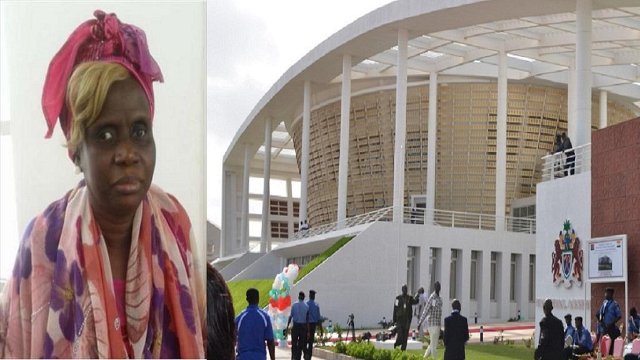
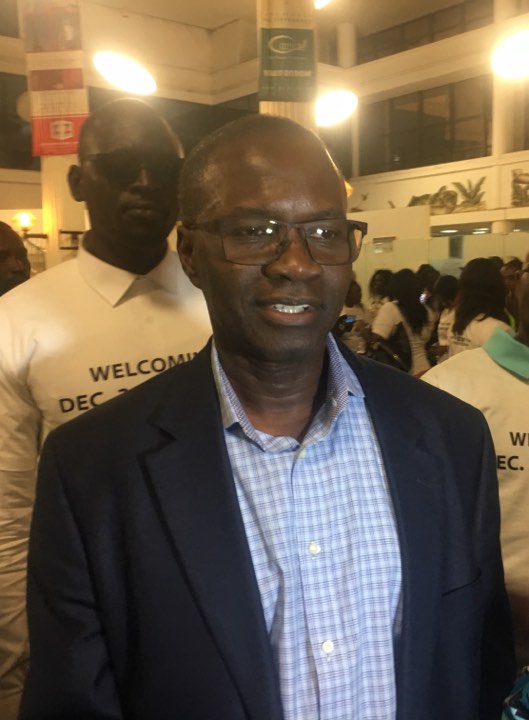
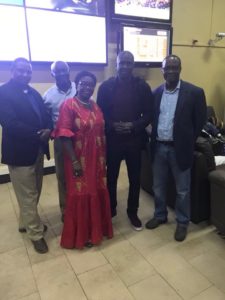
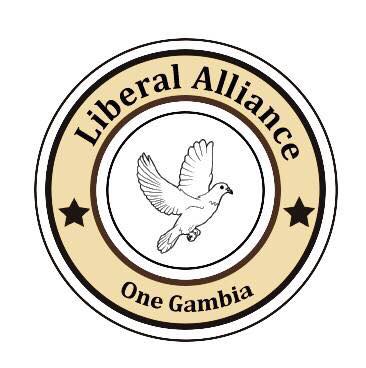
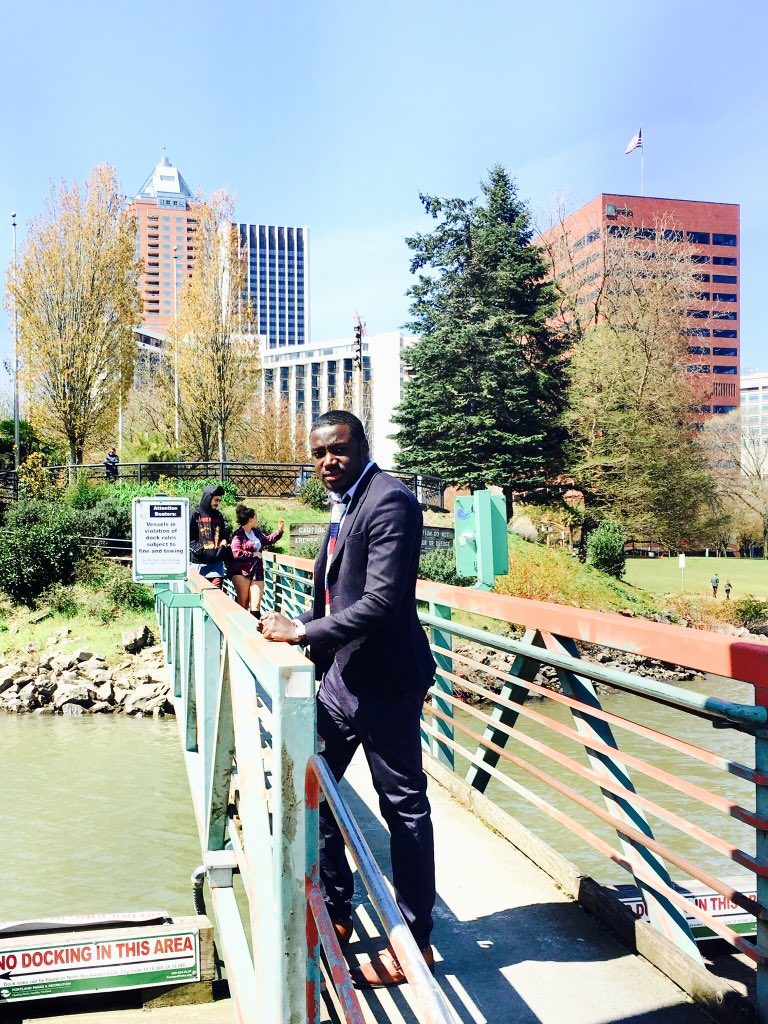
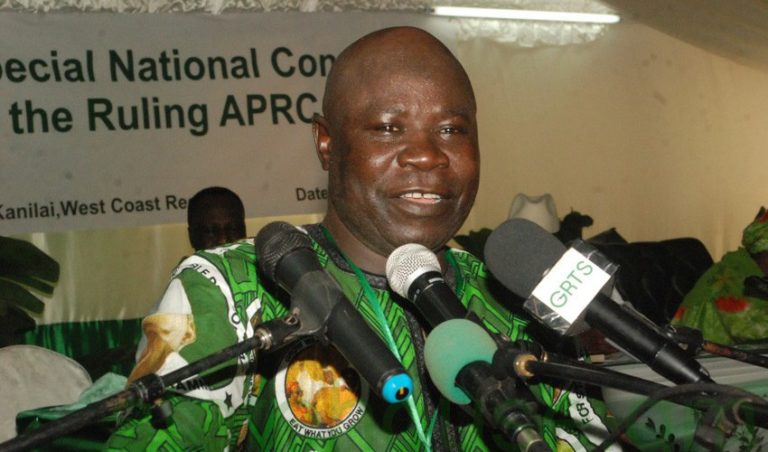
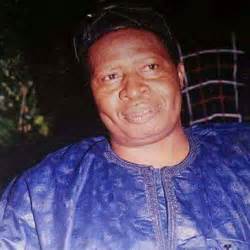

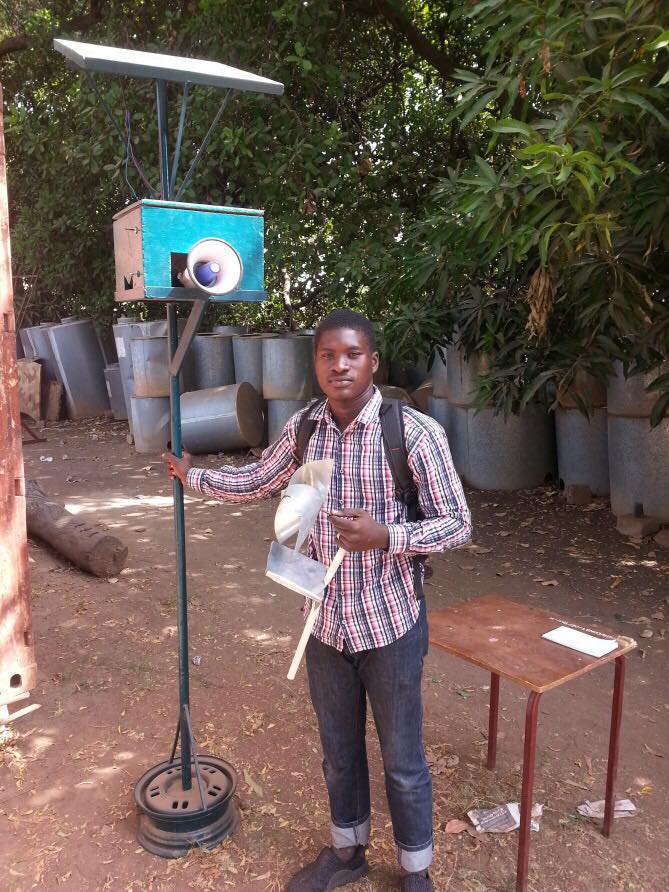
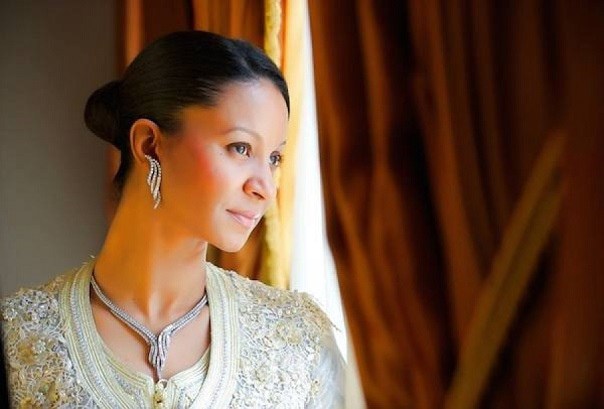
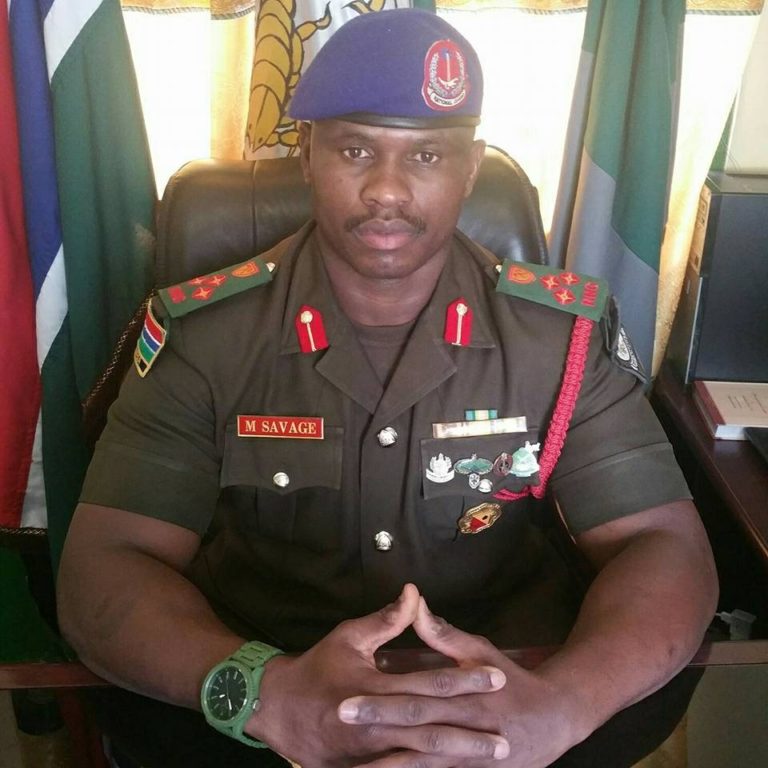
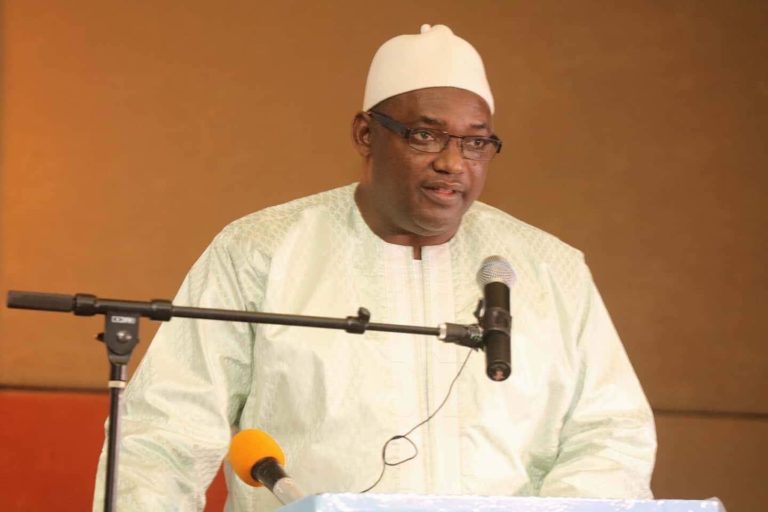
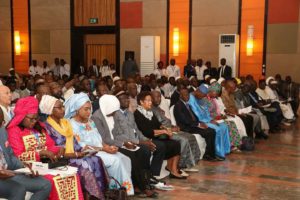
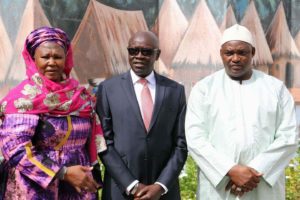
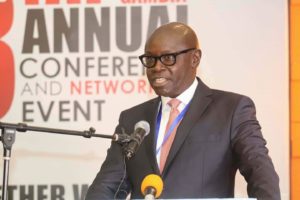
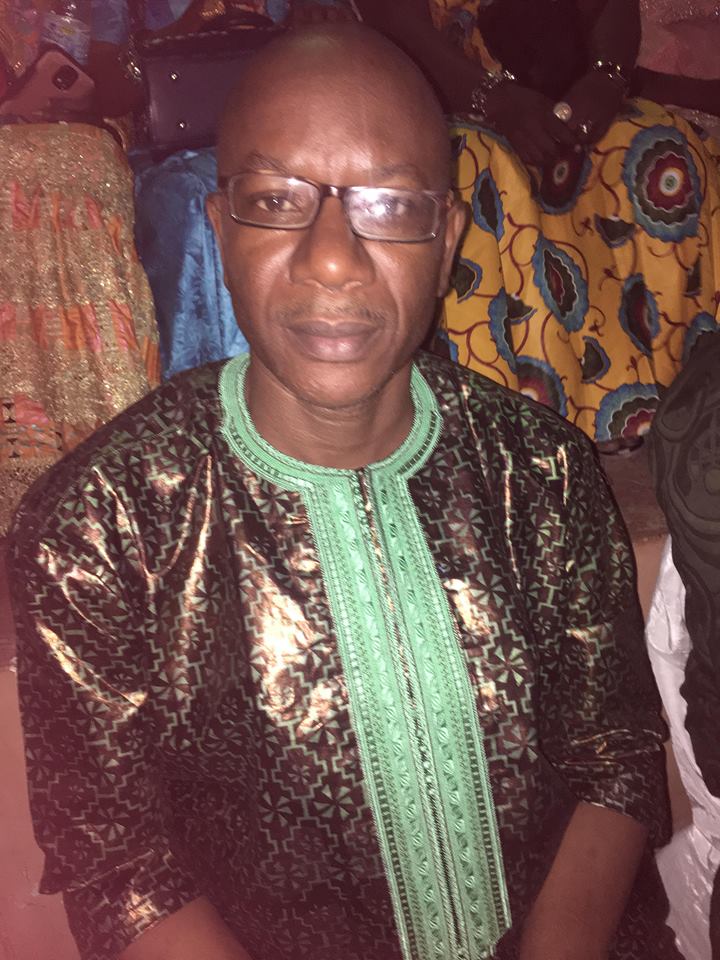


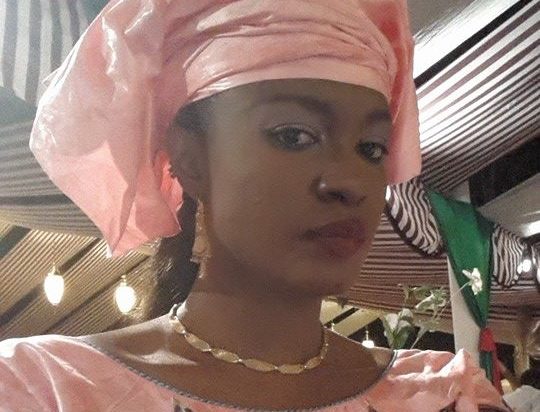
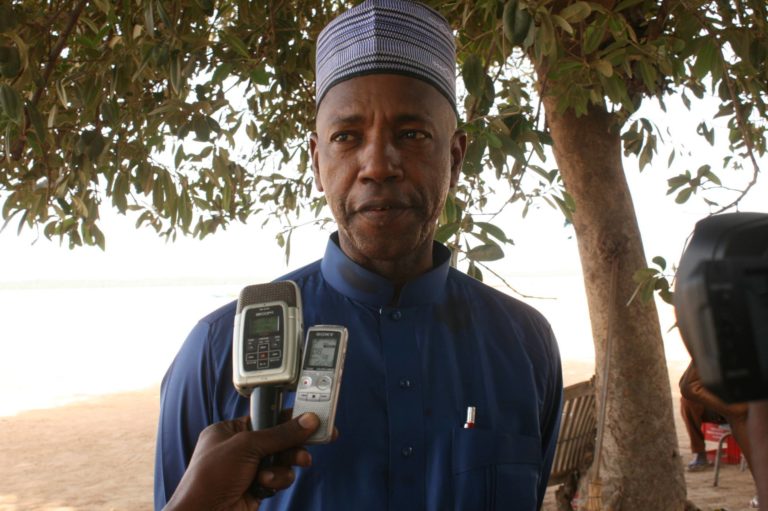

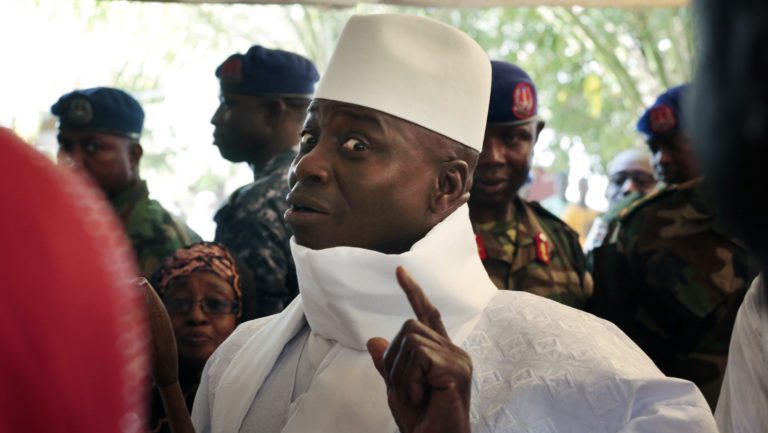


THE GAMBIA: THE ROSE THAT GREW OUT OF CONCRETE
By Jamal Drammeh
“Did you hear about the Rose that grew from a crack in the concrete [?] Proving nature’s laws wrong it learned to walk without having feet.
Funny it seems but by keeping it’s dreams it learned to breathe fresh air. Long live the Rose that grew from concrete when no one else even cared!” -Tupac Shakur.
Since I was a little boy, this poem helped me see with certain peculiarity into dimensions that my peers show profound unconcerned for. Sometimes, they take more interest in parts of the same subject matter that I care the least about. In other words, this poem sharpened my perception in perceiving beauty in the essential nature of things rather than obsessing over the apparent ‘defects’. I often contemplate on the odds of the daily miracles happening before giving much thought to the defects, or why the miracles weren’t perfect after all.
When I think of this improbable twilight of ‘the new Gambia’ and our new democracy – I see a rose growing out of concrete. I’m left to wonder ‘how’ can we make it blossom some more, and not get too busy castigating each other for why this beauty isn’t perfect after all.
In quest to a greater end for our new democracy, we sometimes go to the extremes. Extremes produce defects by law. Sometimes we unwittingly asks for plebiscite instead of the republican democracy we have. A society of a dozen people can perhaps be governed through plebiscite; where every decision is subject to the scrutiny and the vote of each member of the society. Hence, a direct governance of the people by all its members, instead of a representative government elected to represent the people in government. A million people cannot be governed like that.
Its becoming common place to hear cries of foul play and allegations of abuse of power labeled against the executive body – because they simply carried out their executive functions in ways that didn’t please the ‘plaintiffs’. Even appointments to the executive branch, by the executive body, is suddenly turned into a ‘national scandals’ with loud protestations to decry the rise of a new ‘super villain’. When a decision is seen to be unwise or unfair – some would critique the fact that such vested authority of the executive is exercised by them. Like; “how dare they exercise their executive duty?”
Many others make genuine constructive criticism of the government, which is commendable, but some just disguise their disdain for certain party members in government with some form of patriotic duty to express dissent on everything and saw discord at every opportunity. We can seen through both very well, for we know each other very well. Idealism that grew out of contempt will always morph into some form of base fanaticism. No political metamorphosis can conceal the mean motives of a rogue. Self-righteous resentment is becoming a common ploy for intellectual dishonesty. But who are we fooling?
Even the honest critics see their idealism as the only form of pragmatism, forgetting that every ‘pragmatism’ rise out of opinions based on qualified facts. So who is to say their methods and doctrines are the only true pragmatism?
With the internet, one can easily be cocooned into information bubbles to reinforce own biases and be no longer amenable to reason and oblivious to facts. It is easy to live in echo chambers and live in blind adulation of foolish praise of empty words. Repulsion to opposing views and using profane labels to tag any who dare to differ is fanaticism. But the orients of such base methods will still claim their dogmatism is the absolute pragmatism. The ‘insane’ believes in his own illusions.
Lurking in the background; we have the new guards versus the old guards…. or should I say the new activists versus the old activists? Why do you need to so painfully protect the memory of your old glory even to the point of insulting others for expressing their opinions?
“The force of character is cumulative” said Emerson. All the foregone days of courage, virtue and resilience will come to your aid and defense at any attempt to minimize your honest efforts to end Jammeh’s despotic regime .
There is no need to feel threatened by the new breeds of activists in our new democracy. You do not need to waste your vital energy assailing anyone you don’t know to be conspicuously active in politics during the gloomy murderous regime of Jammeh. You don’t need to keep asking every other speaker ‘where they were during the Jammeh days’ to feel you’re still relevant. Real heroes have very little time for triumphing, and reminding folks that they’re the only “true heroes” of the revolution. The heroes are still busy working in the fields for yet a better and more prosperous Gambia.
To the new guards; Goliath is dead! No amount of political posturing and imaginary heroism can bring for you a new Goliath to slay. So to the new voices of activism and voices of reason in our political discourse; take an advice from Micheal Angelo – when he told a young sculptor not to be too concern with shining light on his own works, for the light of public square with test its value. So do your work and carry on – this is only a new beginning.
I’ve learned early on that around every circle, a greater circle could be circumscribed. Anything mundane that’s declared to be the pedestal is often only the point of a new beginning. The coming of new series. Life moves onward, so every ‘today’ gives us a chance for a better ‘tomorrow’. Everyday is a chance for you to do something good and noble for your country and countrymen.
To the disgruntled; Barrow is not Jammeh. Your moral equivalence and constant comparisons of the two regimes makes no sense and makes you sound bitter and at times like a shallow invalid. These false moral equivalences makes you seem like an intellectual prostitute. If you want to be taken seriously, stop relegating descent human beings or your political foes down to the level of a murderous despot – Jammeh & Co. It’s a cheap argument and make you seem foolish. Simply critique the government with facts and clear reason. That’s honorable.
In the new Gambia, we at times seem too busy asking ‘why this rose of ours, that rose against all odds, still have damaged petals?’. In our fascination with the apparent defects, we give little thought to the essential beauty of our new democracy.
No matter what you think of the vicissitudes of our new democracy, it is still the result of an unimaginable improbability. It is the “Rose that grew from a crack in the concrete.” So don’t ask me why it has damaged petals… ask me how we can make this flower of the new Gambia blossom some more.